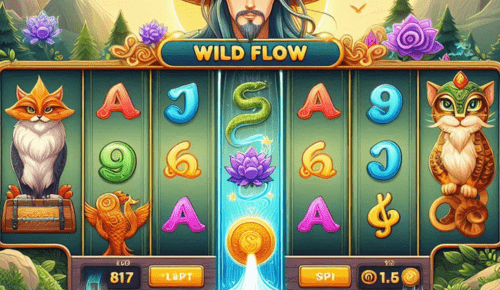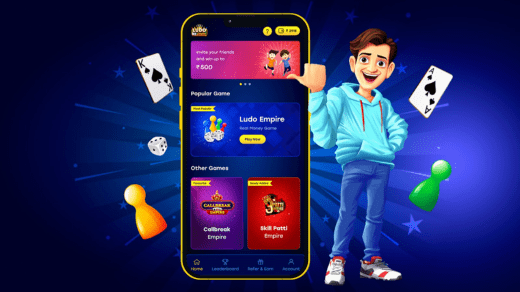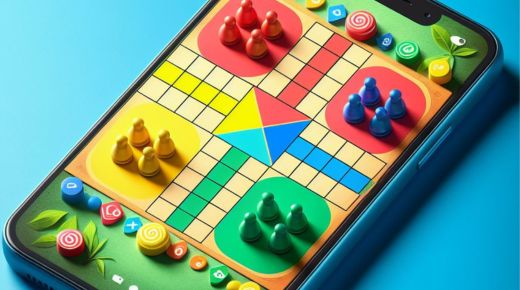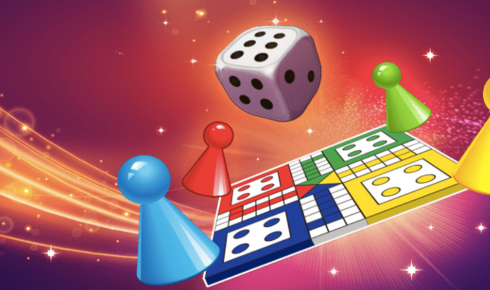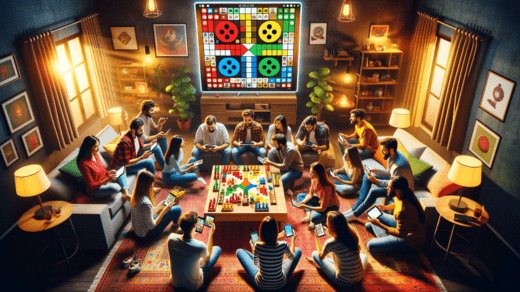
Introduction:
In the vibrant tapestry of Indian gaming culture, few games have withstood the test of time as admirably as Ludo. Originating from the ancient Indian game of Pachisi, Ludo has not only transcended generations but has seamlessly adapted to the digital age, experiencing a remarkable evolution in gameplay. In this blog, we’ll embark on a journey through time, exploring the transition of Ludo from traditional boards to the digital realm, and the impact of technology on the way Indians play this classic game.
1. The Ancient Roots of Ludo:
Ludo, with its origins in Pachisi, has a rich history that dates back over centuries. The game was traditionally played on cloth or wooden boards, with players using dice and tokens to navigate their pieces through a designated path. Ludo’s journey from royal courts to humble households reflects its versatility and adaptability across different strata of society.
2. Ludo in Indian Homes:
For generations, Ludo has been a staple in Indian homes, providing families and friends with a platform for bonding and recreation. The tactile nature of the game, where players physically move tokens across a board, creates a unique experience that goes beyond mere gameplay. Ludo in its traditional form became synonymous with leisurely afternoons, festive gatherings, and rainy days spent indoors.
3. Transition to the Digital Age:
The advent of technology brought with it a wave of change, and traditional board games like Ludo were not exempt. The transition to the digital age marked a significant turning point for Ludo gameplay in India. The traditional board was replaced by virtual boards on smartphones and computers, allowing players to experience the game without the need for physical components.
4. The Emergence of Ludo Apps:
The rise of Ludo apps, particularly the immensely popular Ludo King, brought the game into the palms of millions of Indians. These Ludo download apps retained the essence of traditional gameplay while introducing new features like online multiplayer modes, varied board designs, and the ability to play with friends and strangers from across the country. The convenience of playing Ludo anytime anywhere contributed to the game’s newfound popularity.
5. Online Multiplayer Experience:
The shift to digital platforms introduced an exciting element to Ludo gameplay – online multiplayer functionality. Players could now compete with friends or challenge opponents from different regions, breaking the geographical barriers that existed in traditional board setups. The online multiplayer experience created a sense of community, fostering friendly rivalries and intense competitions.
6. Incorporating Social Features:
Ludo apps didn’t just replicate the physical game; they enhanced it with social features. Chat options, emoticons, and the ability to invite friends to join games added a layer of interaction that went beyond the gameplay itself. Ludo became not only a strategic challenge but also a social experience, allowing players to connect, chat, and share the thrill of victory or the agony of defeat.
7. Customization and Personalization:
Digital Ludo platforms introduced a new dimension to gameplay through customization and personalization. Players could choose from a variety of board designs, themes, and even customize their tokens. This feature allowed for a more immersive and individualized gaming experience, turning each session into a unique expression of the player’s preferences.
8. Tournaments and Competitive Play:
The evolution of Ludo gameplay in India didn’t stop at casual online matches. The digital era gave rise to Ludo tournaments and competitive play, turning a once leisurely game into a serious pursuit for some. There are ample blogs and content on the internet on tips and tricks, and how to play ludo. Players now have the opportunity to showcase their skills in high-stakes competitions, win prizes, and even gain recognition within the online Ludo community.
9. Global Connection Through Ludo:
The digital evolution of Ludo has not only connected players within India but has also created a global community. Indians living abroad, friends separated by distances, and gaming enthusiasts from around the world can now engage in Ludo showdowns, fostering a sense of unity and shared cultural experiences across borders.
Conclusion:
The journey of Ludo from tradition to tech in India reflects not just a technological shift but a cultural transformation. What began as a game played on traditional boards in homes across the country has evolved into a digital sensation that transcends physical boundaries. The adaptability of Ludo to technology has not diminished its cultural significance; rather, it has breathed new life into a beloved classic, ensuring that Ludo continues to roll its dice in the hearts of millions, both in India and beyond. As technology advances, so too will the ways in which Indians experience the joy and camaraderie that Ludo brings, ensuring that the game remains an enduring part of the nation’s gaming legacy.


